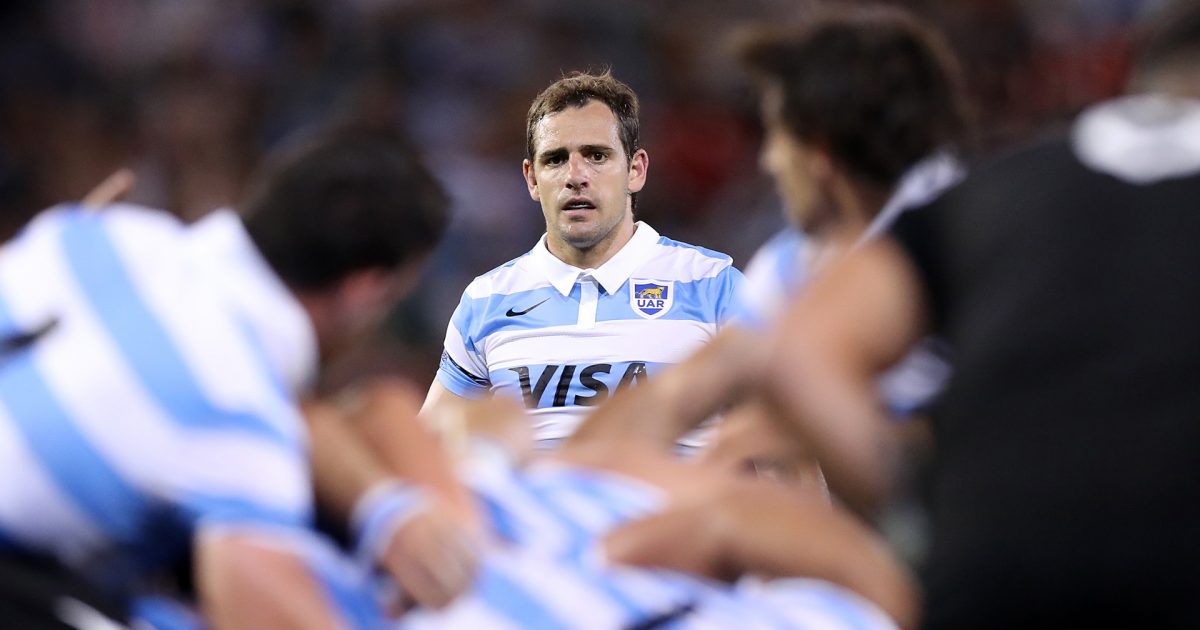Ce qu'il faut savoir sur le match Argentine - Chili

Quel que soit le résultat du match de samedi, il entrera dans l’histoire du rugby, puisqu’il s’agit de la première rencontre en Coupe du Monde de Rugby entre deux pays d’Amérique du Sud.
Mais si ce match est une première dans ce contexte, la rivalité sur le terrain entre les deux pays ne date pas d’hier. Le face-à-face entre Chili et Argentine a déjà eu lieu 39 fois en match officiel sur une période de 87 ans, et c’est sans compter les nombreuses rencontres qui n’ont pas été homologuées.
Le sélectionneur des Pumas Michael Cheika a effectué 11 changements dans son XV de départ par rapport à l’équipe qui a battu les Samoa 19-10. Marcos Kremer, Guido Petti Pagadizabal, Eduardo Bello et Juan Martin González sont les quatre seuls joueurs à avoir conservé leur place de titulaire.
De son côté, Nicolás Sánchez entrera dans le club très fermé des internationaux aux cent sélections. Il y rejoindra son compatriote, le talonneur Agustín Creevy, qui était jusque-là l’unique Argentin admis dans le Saint des saints.
HISTORIQUE
Le bilan des confrontations entre les deux équipes ne parle pas vraiment en faveur du Chili, pas plus que le classement mondial. C’est bien simple : l’Argentine n’a jamais perdu une rencontre internationale face au Chili. Mais leur dernier match officiel remonte à neuf ans déjà, même si les Cóndores ont affronté deux sélections de joueurs argentins pour se préparer avant la Coupe du Monde (une victoire et une défaite). Il n’est donc pas impossible de compter ici sur un effet de surprise en faveur des Chiliens.
MATCH MARQUANT
Il y a neuf ans à Santiago, pour le dernier match officiel en date entre les deux équipes, le capitaine des Pumas, Julián Montoya, avait marqué l’un des 11 essais de son équipe, Nicolás Sánchez avait inscrit 23 points et les Pumas s’étaient imposés 73-12 pour remporter la Coupe CONSUR.
POINT-CLÉ
Présentée comme favorite face à l’Angleterre pour son entrée dans la compétition, l’Argentine était passée totalement à côté de son match. Depuis lors, elle court après son destin pour accrocher une place qualificative pour les quarts de finale. Les Argentins ont ainsi battu les Samoa 19-10 la semaine dernière lors de la première de leurs « trois finales », d’après l’expression employée par Andrés Bordoy, l’entraîneur des avants, pour décrire les matchs de poule restants. Ce derby sud-américain constitue donc le deuxième volet d’un triptyque qui promet de s’achever de la plus belle des manières sur un magnifique Argentine – Japon probablement décisif. Les demi-finalistes 2015 parviendront-ils à sauver leur Coupe du Monde de Rugby ?
LE DUEL
Nicolás Sánchez face à Rodrigo Fernandez. Face au deuxième joueur le plus capé de l’histoire de l’Argentine, c’est un demi d’ouverture de 27 ans, forcément beaucoup moins expérimenté, qui tentera de faire pencher la balance en orientant le jeu de son équipe. Fernandez aura pour lui la fougue de la jeunesse et la fierté d’avoir inscrit les premiers points du Chili dans une Coupe du Monde de Rugby.
LA STAT INCROYABLE
Agustín Creevy s’apprête à disputer son 18e match de Coupe du Monde de Rugby. Il deviendra à cette occasion le joueur argentin le plus expérimenté dans la compétition, à égalité avec Mario Ledesma. À 38 ans et 199 jours, Creevy est le quatrième joueur le plus âgé à disputer un match de Coupe du Monde de Rugby, après l’Uruguayen Diego Ormaechea (40 ans et 26 jours à la RWC 1999), le Namibien PJ van Lill (39 ans et 297 jours à la RWC 2023) et le Canadien Spence McTavish (38 ans et 278 jours à la RWC 1987).
L’ARBITRE
Paul Williams (Nouvelle-Zélande). Paul Williams a arbitré deux matchs dans cette Coupe du Monde de Rugby 2023. Il a sorti cinq cartons jaunes, soit plus que n’importe quel autre arbitre dans la compétition. Mais quatre de ces exclusions temporaires ont été distribuées lors d’un seul et même match, la victoire 43-10 des Samoa sur le Chili à Bordeaux.
LES ÉQUIPES
ARGENTINE : Martín Bogado ; Rodrigo Isgro, Lucio Cinti, Jeronimo de la Fuente (capitaine), Juan Imhoff ; Nicolás Sánchez, Tomas Cubelli ; Joel Sclavi, Agustín Creevy, Eduardo Bello ; Guido Petti Pagadizabal, Pedro Rubiolo ; Juan Martin Gonzalez, Marcos Kremer, Facundo Isa
Remplaçants : Ignacio Ruiz, Mayco Vivas, Francisco Gómez Kodela, Matias Alemanno, Joaquín Oviedo, Lautaro Bazan Velez, Santiago Carreras, Juan Cruz Mallia
CHILI : Iñaki Ayarza ; Santiago Videla, Domingo Saavedra, Matias Garafulic, José Ignacio Larenas ; Rodrigo Fernandez, Marcelo Torrealba ; Javier Carrasco, Augusto Bohme, Matias Dittus ; Santiago Pedrero, Javier Eissmann ; Martín Sigren (capitaine), Clemente Saavedra, Raimundo Martínez
Remplaçants : Tomas Dussaillant, Salvador Lues, Esteban Inostroza, Augusto Sarmiento, Alfonso Escobar, Ignacio Silva, Nicolas Herreros, Francisco Urroz




